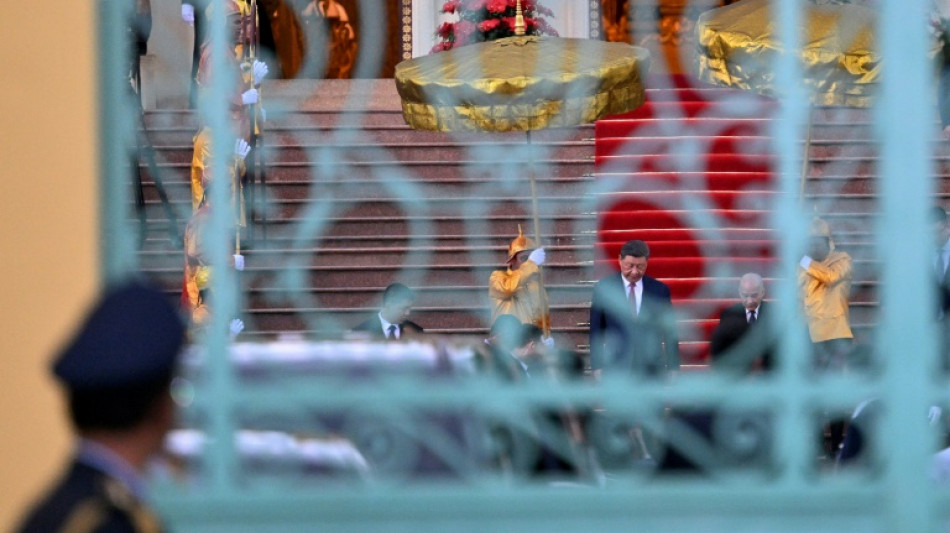
BCC
0.7800


Chinese President Xi Jinping met the Cambodian premier in Phnom Penh on Thursday on the final leg of a Southeast Asia tour in which he sought to strengthen regional trade ties.
Xi arrived in the Cambodian capital after visiting Vietnam and Malaysia, as Beijing seeks to build ties and offset the impact of huge tariffs imposed by his US counterpart Donald Trump.
Former leader Hun Sen and his son, Prime Minister Hun Manet, shared posts on their social media accounts showing them meeting with Xi.
The two countries signed 37 agreements on a wide range of areas, including water resources and education, according to Cambodian state-run Fresh News.
China is Cambodia's biggest trading partner and source of investment and more than a third of Cambodia's $11 billion in foreign debt is owed to Beijing, according to the International Monetary Fund.
Earlier in the day, the Chinese leader was greeted by King Norodom Sihamoni during a military welcome ceremony after he touched down in Phnom Penh.
In an article published by Fresh News on Thursday, Xi said that China supported the kingdom "choosing a development path that suits the nation, safeguarding its national sovereignty, independence and territorial integrity".
He said the two countries should "resolutely oppose external forces interfering in internal affairs, sowing discord and undermining" relations.
- China plays 'pivotal role' -
Phnom Penh is also among Beijing's most reliable supporters in Asia. Hun Manet had described Xi's visit as a display of "iron-clad" friendship.
He said in a video posted on Wednesday that the two countries had "common interests based on the principles of respect for sovereignty, equality, and non-interference in internal affairs".
He also said China had played a "pivotal role" in Cambodia's socio-economic development.
China and Cambodia celebrate 67 years of diplomatic relations this year and the kingdom also commemorated on Thursday 50 years since Phnom Penh fell to the Khmer Rouge.
Trump imposed tariffs of 49 percent on Cambodia, among the highest of the levies handed out in his April 2 "Liberation Day" trade announcements.
He then paused the levies for most countries for 90 days, reverting to a base tariff of 10 percent.
While meeting Hun Sen, Xi said "trade wars undermine the multilateral trading system and disrupt global economic order".
"Unilateralism and hegemonism receive no support of the people," Xi said, as quoted by China's state news agency Xinhua.
China is excluded from the 90-day pause and faces new US levies of up to 145 percent on many of its products.
Beijing has called the taxes a "joke" and imposed retaliatory tariffs of 125 percent on US goods.
Hun Manet wrote a letter to Washington "expressing Cambodia's good faith to negotiate a mutual solution" and pledging to reduce its own tariffs on 19 categories of US goods, according to the commerce ministry.
B.Clarke--ThChM